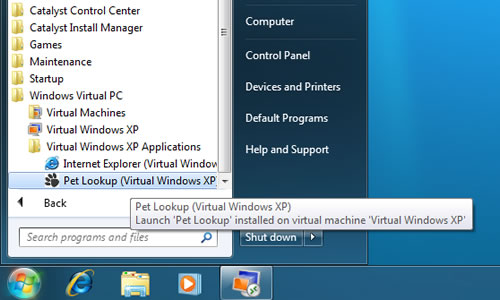Regardless of any technological advantages Microsoft may have introduced with Windows Vista, they were apparently not enough for most businesses to justify a costly upgrade. Not only because of the greater hardware requirements, but also due to compatibility concerns with older software. As a result, the company has seen poor adoption rates for its often-criticized OS in this all-important market; so much that it is still found on less than 10% of business computers despite its January 2007 release.

With the forthcoming release of Windows 7, however, the company hopes to break the upgrading deadlock by introducing a new virtualization tool that will provide better application compatibility for businesses migrating from Windows XP. The feature will be called Windows XP Mode and should allow users to install and run applications in a Windows XP environment running under Windows Virtual PC.
The new feature will be accessed not as a separate desktop but on a per-app basis, meaning legacy applications will run directly from the Windows 7 desktop alongside newer software, and requires an Intel or AMD processor that supports virtualization. The software giant promises to offer Windows XP Mode and Windows Virtual PC as a free download for those who buy Windows 7 Professional, Ultimate or Enterprise versions of the operating system; and will include a fully licensed copy of Windows XP Service Pack 3 with the add-on.
In related news, Microsoft also confirmed earlier rumors that the first release candidate of Windows 7 will be made available to the public on May 5 - not that you actually have to wait until then before downloading it. The company says the new compatibility add-on will be released "soon," presumably on or near the official launch of Windows 7 RC.